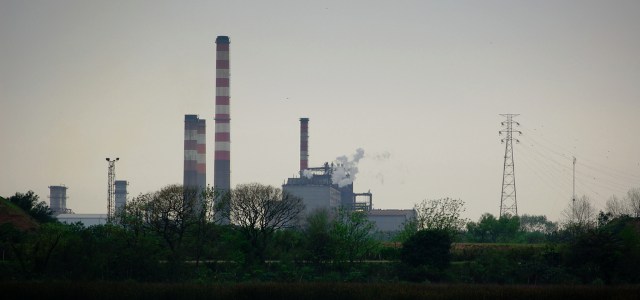Energy efficiency measures are low hanging fruits to achieve more sustainable energy systems. Still, the topic is not very high on the political agenda in Latin America. A new study compares progress made by the countries in the region and names best practices. Sandra Guzman summarizes the findings.

Total energy consumption in Latin America could be reduced by 20-25% if more stringend energy efficiency measures were implemented. (Photo by Beatrice Murch, CC BY 2.0)
In Latin America, energy efficiency is still not being fully implemented. A study by the Economic Commission for Latin America (ECLAC) from 2012 looked at the different policies in 27 countries of the region and showed that they had, in fact, taken some energy efficiency action in the past 15 years. According to the study, countries such as Uruguay, Venezuela, Panama, Peru, Mexico, Brazil and Costa Rica have already set national legal frameworks to regulate and promote energy efficiency. In just a few years, these countries have shown some more progress on the issue compared with the last ECLAC study from 2010 that saw only a few working policy incentives for energy efficiency.
The main finding of the current study is that countries have created better policies and legal frameworks to regulate and incentivize energy efficiency over the past few years. However, there are still problems remaining: the lack of continuity of energy efficiency programs, the lack of sufficient national funds to support programs over a longer period of time, and the difficulties to monitor the correct implementation of these programs. Some of the countries that are more active than others in promoting greater energy efficiency are Mexico and Brazil.
In Mexico for instance, the law for sustainable energy has helped to strengthen other institutional structures, such as the National Commission for Energy Efficiency (CONUEE) and the Trust for electricity savings (FIDE). According to the report of this Trust (which funds both public and private sector projects), the actions taken by the FIDE have already produced positive economic and environmental results and led to decreased energy consumption.
Nevertheless, the amount of money that Mexico has spent on promoting energy efficiency is low in relation to what it spends on the production of oil. The country needs better political and regulatory support from the government, stronger institutional structures, a better information sharing program on the benefits of energy efficiency and access to public and private funding.
The Latin American Energy Organization (OLADE) points out that with a greater emphasis on energy efficiency, total energy consumption could be reduced by 20-25%, with upfront investments in efficiency measures rapidly paying for themselves. According to the Inter-American Development Bank (IDB), energy efficiency in Latin America could reduce energy consumption by at least 10 percent in the next decade and save many millions of dollars. The IDB has designed a series of handbooks to provide guidance on how various energy efficiency programmes could be designed, highlighting that – above all – a financial strategy is necessary to achieve these goals.
Another key challenge is to ensure a proper dissemination of information about the benefits of energy efficiency and savings, which still is no clear priority for many of the governments. Without the necessary information about the potential cost savings that energy efficiency offers, these generally more expensive technologies are not particularly sought after by a wide group of consumers.
Renewable energies will be not be able to cover 100% of current power demand in the region in the near and medium term, so we will need more stringent energy efficiency measures. Clearly, the investment in energy efficiency goes beyond combating climate change, as it will be beneficial for the environment and the economy of countries. It is one of those low hanging fruits that countries in the region should take more seriously.
Sandra Leticia Guzman Luna holds a Masters Degree on Environmental Policy and Regulation from the London School of Economics and Political Science, she studied International Relations at the University of Mexico (UNAM), and is a specialist in Environmental and Energy Management from the Latin-American Social Science Institute (FLACSO).